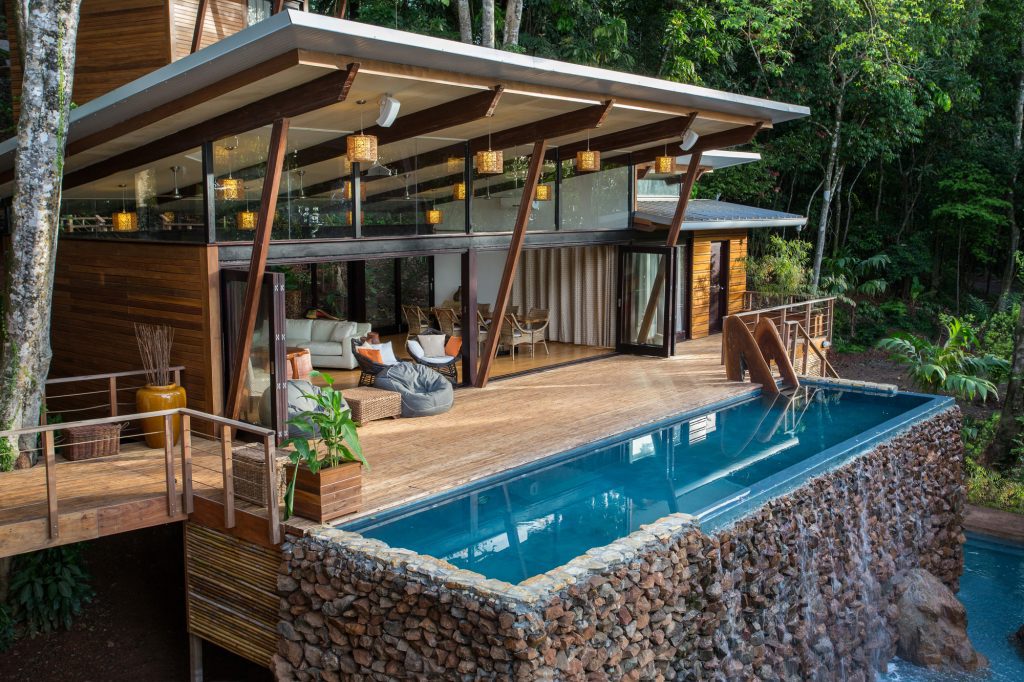Skift Take
Upscale hotels are embracing environmental awareness these days. But for many hoteliers, it's crucial not to let their luxury standards slip while skipping the straw.
 Travel's most forward-thinking insiders will gather September 18–19 for our annual Skift Global Forum in New York. In just a few years, Skift's Forums — the largest creative business gatherings in the global travel industry — have become what media, speakers, and attendees have called the “TED Talks of travel.”
Travel's most forward-thinking insiders will gather September 18–19 for our annual Skift Global Forum in New York. In just a few years, Skift's Forums — the largest creative business gatherings in the global travel industry — have become what media, speakers, and attendees have called the “TED Talks of travel.”
Skift Global Forum 2019 will take place at Jazz at Lincoln Center’s Frederick P. Rose Hall in New York. This year's Forum speakers include CEOs and top executives from Booking Holdings, Delta Air Lines, Expedia, Air France-KLM, Marriott International, Amtrak, and many more.
The traditional definitions of luxury and sustainability have been at odds. The old concept of luxury was all about material excess, and sustainability was all about reducing unnecessary waste. Today much of the luxury travel sector embraces environmental awareness, as filling the ocean with a hotel’s tiny plastic bottles of Bulgari bath product falls way out of fashion.
That’s where companies like Cayuga Sustainable Hospitality come in, giving travelers a balanced combination of luxury and sustainability at 10 independently owned hotels along Central America’s Pacific coast. A green hotel doesn’t have to feel like a cheap hostel and luxury doesn’t have to contribute to the nearest landfill. Smaller chains like Cayuga, based in San José, Costa Rica, can even be more nimble when it comes to implementing green policies, as some larger hotel companies are slow to adapt on a global scale.
Cayuga co-founder Andrea Bonilla emphasized the importance of monitoring that balance between green and high-end, each side being key for her clientele. Her goal is to deliver a satisfying, upscale experience while also cutting plastic waste like bottles and straws, planning ahead to curb food waste, and contributing to the well-being of the surrounding community, especially local working women.
Bonilla will speak on September 18–19 at Skift Global Forum in New York.
Skift Editor’s Note: This interview has been edited for clarity and length.
Skift: Luxury has long been associated with material excess. Do you find that these days sustainability and luxury go together more easily?
Andrea Bonilla: We don’t specialize in luxury, we specialize in luxury and sustainability. So it’s very different because like you say, pure luxury implies huge bathrooms and bathtubs and marble floors, the right curtains. So what we do is we do a mix of luxury with sustainability, and yes, it can definitely go hand-in-hand.
We do have big bathrooms, and we also have blackouts in some places, and we have curtains in most of them. But it’s the emphasis that’s given in those things, emphasizing the community and the nature that’s surrounding us, and embracing everything within this luxurious experience. Our clients are looking for that combination.
Learn More About Skift Global Forum
Skift: Are you doing anything in particular to reduce plastic waste at your properties?
Bonilla: Yes, we started 10 years ago when we decided not to offer plastic water bottles, and we took plastic straws away. When we decided not to have them, one of our gardeners at one of our properties started with a project that was a bamboo straw, and it’s not the thick bamboo that we think of, it’s a smaller bamboo. Our guests love it, and now he has this big enterprise and he sells to a lot of other properties. Now it’s kind of a fad in Costa Rica to not have plastic straws, which is great. We also don’t have little amenity bottles. The toiletries come in big refillable glass containers, and then if somebody wants to purchase a bigger lotion or shampoo, they can do that, and they’re all produced in Costa Rica, so it’s not like we’re importing from L’Occitane.
We’re now trying to work with our suppliers. Sometimes it’s harder to tell somebody how to run their own business. We try to give suppliers the bigger reusable plastic vegetable boxes for them to bring produce to us.
It’s hard with our consumers. In the minibars we still have materials similar to the Doritos bag, but made in Costa Rica. In some of our properties, we have granola bars made at home, or chocolate made at home, but a lot of our guests really still want that Snickers.
Join Us at Skift Global Forum!
Skift: Have you done any work to minimize food waste?
Bonilla: Yes, and there’s still a long way to go. In some of the smaller properties guests can preorder their meals. In that way, we control the portions that are set out, especially protein. Also when you buy locally, you don’t need to buy 20 kilos of carrots, you can actually buy five — and then buy another five — and not have a bigger carbon footprint because of that.
Skift: What would you say are your toughest long-term sustainability challenges right now?
Bonilla: The main one that we’re focusing on this year is community. We have this big women’s project that we want to include in all of the communities where we’re at. We want to make sure that we can support their kids so they can go to work, plus addressing social problems in rural areas like sexual abuse, and just lack of information and education.
Have a confidential tip for Skift? Get in touch
Tags: climate change, plastics, sgf2019, skift global forum, sustainability
Photo credit: A villa estate on Isla Palenque in Panama balances luxury and sustainability as part of the Cayuga Collection. Cayuga Sustainable Hospitality
